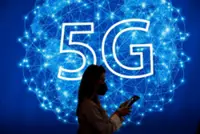PETALING JAYA: Is there a possibility the end-June deadline for telcos to take a stake in Digital Nasional Bhd (DNB) will be extended to give the parties involved more time to negotiate a deal?
Or will the deadline remain as telecom players wait for changes to be made to the existing reference access offer (RAO) dated end-March for the provision of 5G wholesale access services?





